The subtleties of digesting cottage cheese in the human stomach
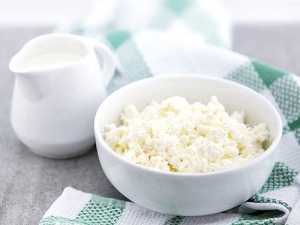
Good nutrition and water are the main sources of vital activity of any organism. A reasonable person, as far as possible, tries to use those products that will bring the most tangible benefit.
Cells need proteins and carbohydrates to function properly. Proteins are the real "builders" of any cell, and carbohydrates are "fuel", "suppliers" of energy. Cottage cheese is a full-fledged source of both. In addition, it still contains fats, essential substances and vitamins, so there is no doubt about its benefits.

Peculiarities
Our body is arranged very finely, and sometimes it gives out unexpected reactions to both new and familiar dishes. Not only is the taste and freshness of the product consumed important, it also relates to different types of food and the process of assimilation in different ways.
At its core, the process of direct digestion can be divided into two stages.
- Physical. Food is chewed, that is, crushed and moistened with saliva. Then it mixes and dissolves.
- Chemical. Digestive enzymes called hydrolases break down ingested proteins, fats, and carbohydrates into simpler, water-soluble compounds. Proteins are broken down into amino acids, fats into fatty acids and glycerol, carbohydrates into monosaccharides. It is necessary for absorption into the blood.
Digestion time in the human stomach depends on several factors: the type and texture of food, its composition, compatibility with other substances.If food can be easily digested, then it will provide a person with quick energy, but the feeling of hunger will appear earlier. If the food is digested slowly, then the feeling of satiety will last longer.
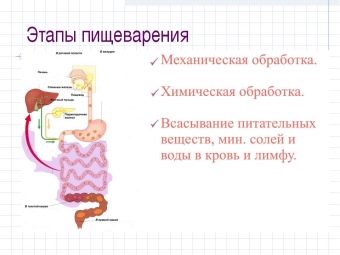
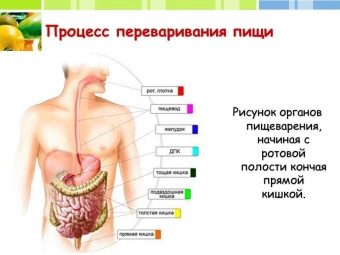
According to the time and characteristics of digestion, four main groups of products are distinguished.
- Sources of the largest amount of carbohydrates. They are digested within an hour and provide the body with energy. This group includes: freshly squeezed vegetable and fruit juices, vegetable and fruit salads, peaches, watermelon, melon, grapes, oranges, apples, pears, cherries, juicy vegetables, carrots.
- High protein sources: dairy products, eggs, seafood, fish, poultry, nuts, herbs, dried fruits. The learning time for this group is at least two hours.
- "Suppliers" of fats and protein. These are cereals, bread products, cheeses, cottage cheese, potatoes, legumes, mushrooms. It takes about three hours to digest them.
- The slowest group, which is poorly digested, and may not be digested at all: four hours. Here gastroenterologists include coffee, tea, sweet and fatty pastries, canned fish and meat, sausages, various types of meat, smoked products, hard cheeses.

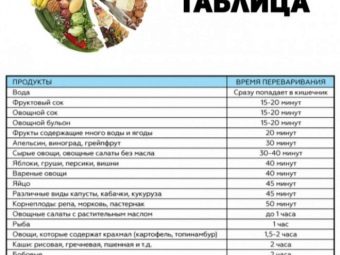
What is rich in cottage cheese?
So, cottage cheese belongs to the third group. But before talking about the features of its digestion, it is necessary to understand what specific substances it contains.
First of all, it is a source of valuable proteins, which, in turn, consist of complex chains of amino acids. Without amino acids, any life processes are impossible.
Proteins are of animal and vegetable origin. Best of all, the human body absorbs animal proteins, in which the number of amino acids reaches twenty. All of them are contained in cottage cheese.
Cottage cheese is able to significantly increase immunity and normalize the work of the gastrointestinal tract, therefore it is rightfully considered a dietary food.
Curd contains casein. This protein restores muscles after heavy loads, promotes bone formation during a period of intensive growth, and helps rehabilitation after serious illnesses. It should be noted that natural casein is produced only in the process of curd coagulation of milk, and is not contained in any products other than cottage cheese and whey from it.
Cottage cheese is the main supplier of such important acids as methionine and choline, on which the work of the liver and kidneys, the state of the nervous system depends.
In addition, cottage cheese is a rich source of calcium and phosphorus. Scientists have calculated that only nine tablespoons of cottage cheese (or about one hundred grams) can satisfy the daily need for these elements.
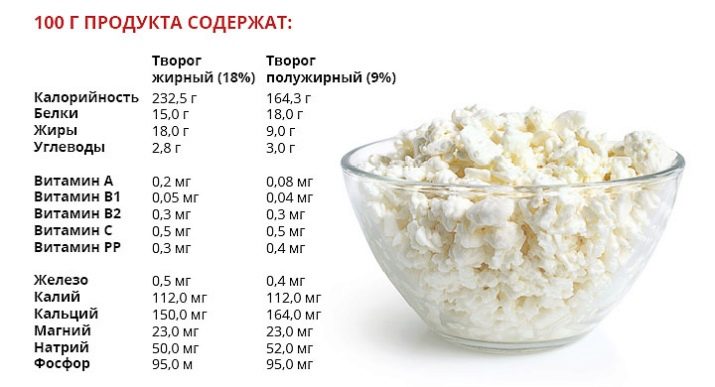
Calcium is essential for the growth and strengthening of bones. In addition, our appearance also depends on this element, namely: the health of teeth, nails, hair. During heat treatment, calcium is not destroyed.
Even these components alone make the fermented milk product a must in the diet. If we also take into account vitamins of groups A, C, D, B, iron, fats and carbohydrates, then it is clear why cottage cheese must be included in the diet of pregnant and lactating women, people suffering from circulatory disorders, diseases of the cardiovascular system, kidneys, gastrointestinal tract, athletes.
As for women's health, regular consumption of cottage cheese affects the state of the reproductive system and, according to doctors, prevents the occurrence of certain diseases.
For the male body, in addition to the undoubted benefits in building muscle mass, it will help in the production of the male hormone - testosterone, and normalizes the state of the endocrine system.
For children and adolescents, cottage cheese is also useful in that it promotes the production of growth hormone and prevents the development of rickets.

The subtleties of the process of digestion of a dairy product
In order for the benefits of this product to be most tangible, it is necessary to figure out how long the process of digesting cottage cheese takes and when it is best to eat it.
Curd products are able to provide the body with energy for a sufficiently long period of time.Therefore, doctors advise using it mainly at lunchtime. It is during these hours that the process of digestion is especially intense. In addition, the composition of cottage cheese contributes to the production of hemoglobin in the blood, which significantly improves metabolism.
Thus, the product eaten at lunch will be digested for about two hours. In the morning and evening hours, this process will take longer and will take about three hours.
But do not think that you can not use cottage cheese in the morning and in the evening. In the morning, it will charge you with energy for the whole day, at night it will relieve hunger and insomnia, as it will calm the nervous system.
Many nutritionists therefore advise athletes and dieters to consume 5 and 9% cottage cheese in the evening.
In addition, the fat content of cottage cheese significantly affects the rate of digestion. The fatter the cottage cheese, the slower it is absorbed, so in the afternoon it is better to pay attention to a product with a low fat content.

There is a lot of controversy about the benefits and harms of fat-free cottage cheese.But it has been proven that it loses most of the minerals and vitamins during processing, fat-soluble vitamins A, E, D are absorbed worse, and the loss of the latter leads to poor absorption of calcium. The optimal fat content for the full absorption of calcium is 9%.
Of course, freshly prepared homemade cottage cheese will be the most useful, and without long heat treatment. It is prepared very simply, and to lower the percentage of fat in it, it is enough to leave the milk for several hours in a cold place and remove the upper settled layer.
If such preparation is not possible, then when buying, close attention should be paid to the time and conditions of storage of cottage cheese. This is a very perishable product. And it should not contain any impurities and additives, as they are often used to improve taste and increase shelf life.
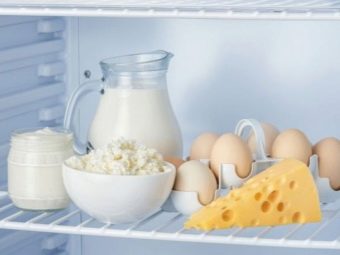
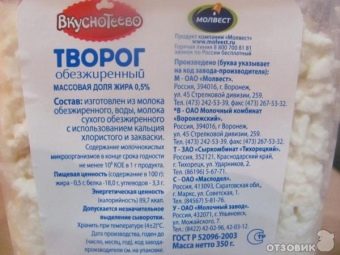
Another important factor is the products with which cottage cheese is used. It is best to add berries, fruits, herbs, sour cream to it. Perfect combination of cottage cheese and honey.
Do not use it after a hearty dinner for dessert. This will complicate the work of the stomach and slow down the process of assimilation of useful elements.
It is necessary to remember the individual characteristics: at an early age, a person needs more useful elements, and the digestion process itself is faster. With age, the speed of all life processes slows down. This is significantly affected by the state of health and the compatibility of the body with dairy products.
Calculating the optimal amount of cottage cheese to consume is very simple. It is only important not to overeat, it will not bring any benefit, but digestive problems may arise. Excess protein creates an additional load on the work of the kidneys.One hundred grams three times a week is enough to get all the vital substances. If it is possible to use it in the same amount daily, then this will only be a plus.
By following all these simple rules, you will bring great benefits to your body and enjoy a wonderful tasty product.

For information on how to choose the right cottage cheese, see below.

















